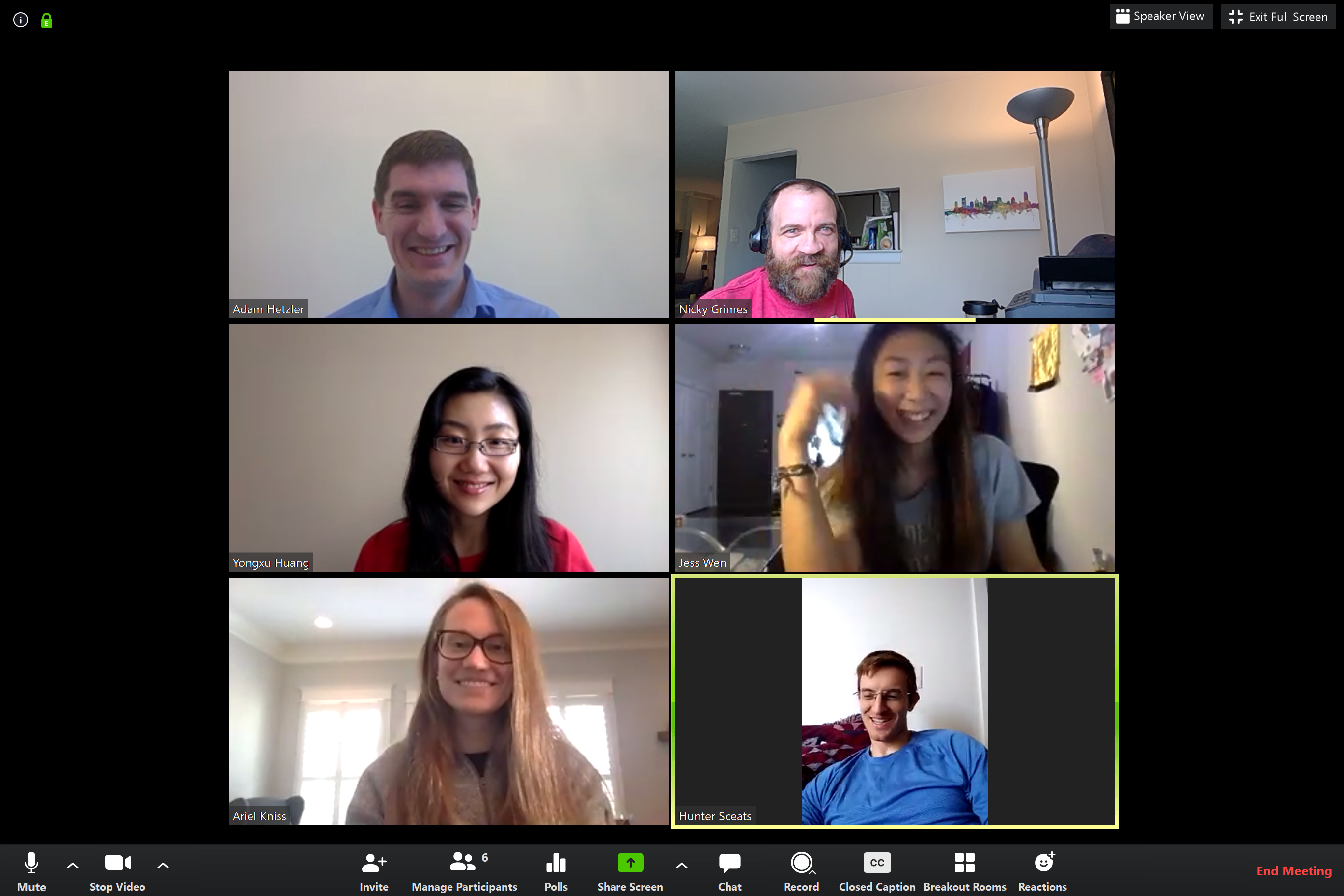MIDP team develops proposal to extend N95 respirator life five-fold during COVID-19 Design Challenge!
by Emma Mattson
Six Vanderbilt students in the Medical Innovators Development Program (MIDP) participated as a team in the COVID-19 Design Challenge run by Johns Hopkins University during March 26 through 30. The final result of their work, christened the Phoenix Protocol, offers a novel and efficient way to extend the life of N95 respirators by five-fold. Best of all, the equipment proposed to decontaminate the respirators is already available in hospitals across the country.
The six-person team formed after Ariel Kniss, a fourth-year MIDP student, sent out a group message to other MIDP students to gauge interest. The resulting team members— Ariel Kniss, Nicky Grimes, Adam Hetzler, Yongxu Huang, Jessica Wen, and Hunter Sceats –submitted an application on March 24 and were accepted to participate the next day.

Out of the five themes suggested by Johns Hopkins, the team decided to focus on the shortage of critical health care equipment. Beginning Friday night, the students met via Zoom to brainstorm, research, and eventually write up the protocol for their solution.
“Sometimes we would all be brainstorming together and other times we would all be on the call together just silently working,” Wen, a fourth-year MIDP student, said. “Our team worked really well together; team members would volunteer to take on different roles so that delegating wasn’t necessary.”
Throughout the weekend, the team also made use of videos provided by the design challenge, covering a variety of topics from critical care to developing entrepreneurial pitches. On Monday morning, the team presented their result at the conclusion of the challenge.
“As the COVID-19 pandemic intensifies, hospitals face dramatic N95 respirator shortages if they do not find ways to reuse masks,” their abstract reads. “We provide the Phoenix Protocol, a standardized and low-cost (less than $20) protocol utilizing a dry-heat process through repurposing hospital equipment to decontaminate SARS-CoV-2 on respirators.”
The protocol would extend the life of N95 respirators up to five-fold, and since it only uses equipment most hospitals already have on hand, it promises a quick and seamless introduction into hospitals across the country.
Hetzler, a second-year MIDP student, said the time constraint was both the best and most challenging part of the whole experience.
“At the time, the number of COVID cases was increasing dramatically,” Hetzler said. “It seemed like there was this big time crunch to deliver something. That was imposed by the design challenge, but it wasn’t just an artificial constraint.”
According to Hetzler, the team is still waiting to hear back from Johns Hopkins regarding their proposal, but they have shared it with VUMC as well, in hopes that it might be of immediate help to the medical center.
“Developing solutions during this international crisis is difficult in part because those who understand the clinical aspect of the crisis (e.g. physicians, nurses, etc.) are extremely overwhelmed with patient care,” Wen said. “On the other hand, those who have the time and skills to work on these issues (e.g. engineers, scientists, etc.) don’t necessarily have the clinical background to understand what type of solution is possible to execute.”
In the meantime, the MIDP students’ unique combination of applied science and clinical training positions them perfectly to continue contributing meaningful solutions in the midst of the pandemic, Wen said.
“The participation and acceptance to the Design Challenge is exactly the kind of thing the program encourages the students to take on,” MIDP Program Coordinator Ali Coffey said. “Our students have the backgrounds and expertise to really change and innovate health care.”
For third-year MIDP Yongxu Huang, the best part of the challenge was the opportunity to work with her peers from different years in a team environment.
“What’s incredible about MIDP is that everybody has such diverse backgrounds and such unique strengths, skills, and talents,” Huang said. “Each of us found our own unique way to contribute.”
Wen and Kniss, who graduate from Vanderbilt this spring, both expressed the desire to remain active in health care innovation in the coming years.
“For me this experience really solidified that the fabric of MIDP is made of individuals who are creative and innovative both inside and outside of the program,” Wen said.